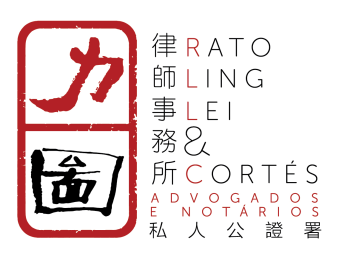The Macau Economic Department recently issued a set of instructions regarding what should be considered illegal in advertisements for games of fortune and chance.
According to the instructions, it is forbidden to advertise games by showing gaming symbols (eg, tables or chips) or promoting gaming by using ambiguous, covert or implicit forms (eg, promoting online gaming through regular websites or using innocuous or apparently unrelated activities to promote gaming, such as lucky draws or rewards point schemes).
The instructions go beyond the scope of the Advertisement Act (Law 7/89/M) and existing gaming concession and sub-concession contracts.
Under the Advertisement Act, games of fortune and chance cannot be advertised if the games are themselves the main focus of the ad. Ads for games of fortune and chance are thus allowed if they do not contravene this restriction – that is, if the game itself is not the essential element of the ad.
Despite this restriction, the concession and sub-concession contracts executed by the government since 2002 (when the Advertisement Act was enforced) require operators to conduct advertising and marketing campaigns both in Macau and abroad.
All contracts include clauses such as:
"1. The Concessionaire shall be under the obligation to carry out advertising campaigns and market promotion of its enterprises, especially its casinos, within and outside Macao Special Administrative Region.
2. The Government and the Concessionaire shall have the obligation to coordinate its advertising and market campaigns in promoting Macao outside.
3. Without approval of the Government, the Concessionaire shall be obligated not to use images or large text remarks regarding its casinos, enclosure or continuous annex area on any Internet dotcom or website or any other place intended to promote interactive gaming." (March 28 2002)
The act allows gaming operators (eg, casinos, hotels and gaming machine sellers) to advertise games of fortune and chance when the games are not the essential element of the ad.
The Macau legal framework of internal sources of law (Law 13/2009) provides that laws approved by the Legislative Assembly and independent administrative regulations and supplementary administrative regulations enacted by the chief executive are the principal types of internal sources of law. Moreover, the referred law provides that laws approved by the Legislative Assembly prevail over the other normative sources, regardless of the date of publication and the time between promulgation of a law and its entry into force. Law 13/2009 gives the legislative assembly the competence to enact, amend, suspend and revoke laws.
However, this raises a crucial question about the framing of the instructions. Law 13/2009 does not recognise the instructions as an internal source of law. 'Instructions' are orders or commands that a superior gives to a subordinate, or that a department gives to another department under its supervision. Instructions cannot therefore conflict with the law or gaming concession contracts, or impede concessionaries from fulfilling their contract obligations, as they are more restrictive than law. Instructions, no matter what the source, cannot change, contradict or revoke a law – the rule of law is a principle of Macau's legislative system and cannot be waived.
The government has two options:
- Review, suspend or revoke the Advertisement Act by Legislative Assembly law; or
- Review the signed gaming contracts.
If these options are not undertaken, the instructions cannot remain in force.
After due analysis, it appears that the instructions may be illegal and against the law.
It remains to be seen whether the issuance of these instructions will be the basis of a new law on advertising or a revision of the existing law – keeping in mind the gaming concession contracts. For now, gaming operators may disregard the instructions and continue to develop ads pertaining to their activities. However, their obligations under gaming contracts may be challenged by the government.
For further information on this topic please contact Pedro Cortés or Helena Nazaré Valente at Rato, Ling, Lei & Cortés Advogados by telephone (+853 2856 2322) or email ([email protected] or [email protected]). The Rato, Ling, Lei & Cortés Advogados website can be accessed at www.lektou.com.
This article was first published by the International Law Office, a premium online legal update service for major companies and law firms worldwide. Register for a free subscription.




